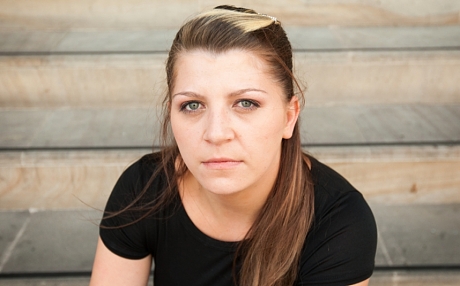I’m going to seem very harsh here, but that’s because I’m a dick. Her piece is actually very good.
Are women so smothered by the blanket of victimhood that we can’t concede that men face issues too?
Yes. Women smother each other all the time. Lesbian domestic violence is among the highest per capita. But I digress…
Isn’t the hallmark of intersectionality finding victimhood everywhere?
LOL No. Intersectionalality is the interest of finding victimhood in only specific demographics which help activists empower themselves.
Feminist boosterism can make us feel empowered.
Feel good. Not empowered. It makes you feel good. You can only empower yourself and that’s done by taking action. It’s a tough thing, really: you are only empowered by powering through things, which requires “empowerment.” The trick is that the power was always there; most people just don’t perceive it.
This is good; I too love when I am told I am special and powerful. Women do indeed face many problems in society.
Not as many as women, the most privileged class by all objective measures, actually face.
However, at my women’s college in particular, feminist ideology renders students blind to the injustices that disproportionately affect men, like homelessness, harsh prison sentencing, and gang violence.
This doesn’t just happen at colleges. It happens everywhere, including places of legislation, the White House, the Twitters, in the streets, hell, even Facebook groups filled with harpies.
Thus, colleges need to actively incorporate men’s issues into their curriculum.
Why? Men generally don’t bother trying to think of problems as systemic, largely because they aren’t. Social norms of behavior which hurt a demographic or another aren’t systems. Systems have to be especially designed with purpose. People’s behavior, while they can be affected by systems, generally are self-generating. You can build a system to affect consumer behavior, for example, but the human behavior was always the same. The conditions that the human behavior interfaces with changes. If you are averse to risk and a government policy increases the risk of an activity, your aversion to risk may reform your actions. Your behavior is unchanged. That’s why the concept of “systems of oppression” are ridiculous: people feeling they have no power (thus the need for “empowerment”) need to be reminded they have agency and blame” systems of oppression” for their perceived lack of agency and power. It’s delusional.
Men generally don’t bother fighting “systems of oppression” that oppress them because men aren’t being told that personal failures are to be blamed on something other than themselves. Society tells men they are responsible for this and that and men agree – usually because they are. If you don’t get up and move, it’s not necessarily because you’re being kept from doing so. It’s your responsibility to do it. Women, on the other hand, are being told someone else needs to do it for them. Men don’t get told that. Hence men KNOW they have agency while women need to be reminded they have it as well.
And who tells women they have no agency in the modern era? Other women do. Women activists who need money, so they create the illusion that women still have no agency despite having it.
To actively avoid talking about men’s issues is to create a citizenry deprived of important knowledge about how the world works for men and shields students from socio-economic realities. This must end.
When I started taking Women’s Studies classes 4 years ago, I was seduced by feminist ideology.
I’m so sorry.
Mentally tabulating my oppression cards became a hobby.
This is the latest craze among the blissfully ignorant youth. Go on.
Unfortunately, being steeped in feminism didn’t just make me blind to the truth about men—it made me actively resist learning about it.
Is it like an allergy? Does feminism make people testosterone intolerant? Is that why the men who get involved in feminist circles seem like walking, talking, stinking manginas?
Thankfully, while feminism taught me that women were on the losing side of everything—real life taught me that disadvantage is more nuanced than that.
Yes, the world is very complex. Gender relations are incredibly complex. So complex that you need science to understand it.
So why do we ask feminists, who are the antithesis of science, anything about gender relations at all?

